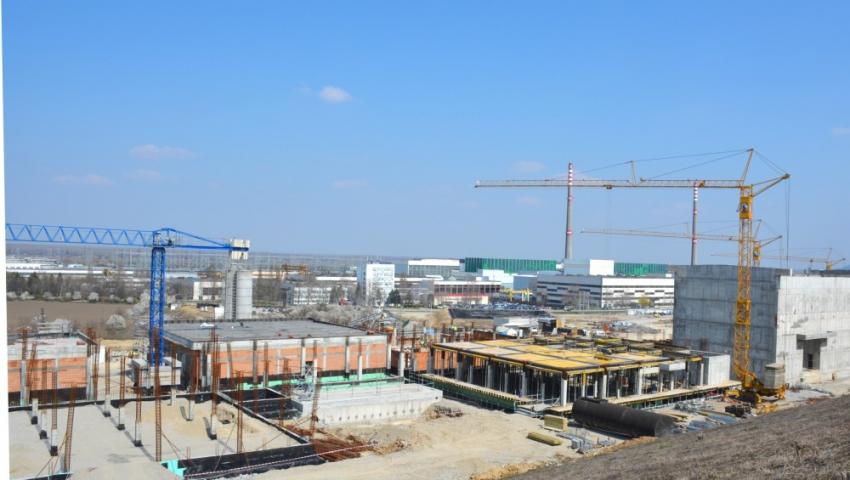1 million cubic meters of earth has already been excavated during the construction of the Radiana site
The complex design development for the site includes technical and biological reclamation of the areas during operation and closure of NH RAW

There will be no period in which the site of the National Repository for Radioactive Waste Disposal (NH RAW) will remain without vegetation after its commissioning. This became clear during the second working meeting on the project for reclamation and landscaping of green areas on the site of "Radiana", according to the State Enterprise "Radioactive Waste". Both the commitments and the deadlines for control over the maintenance of the already grassed terrain became clear - the mowing of the vegetation, which according to the plan is envisaged as a fire-fighting measure, as well as the activities for nourishing the soil after the biological reclamation. In the course of the large-scale construction of the National Repository, intended for processed and safe radioactive waste generated on the territory of Bulgaria, and in accordance with the project, about 1 million cubic meters of earth masses have been excavated so far. Part of this amount is utilized for the loess-cement cushion under the burial cages. A significant part of the excavated earth mass is stored on the site for future use when closing the repository.
The complex design development for the site includes technical and biological reclamation of the areas during operation and closure of NH RAW and landscaping of the green areas on the territory of the repository (46.6 hectares), which will be implemented in two stages - during the operational period and after the closing period. The necessary balance has been made to provide humus soil for the period of both stages. "Only after the first year after spreading the humus soil, the soil microflora is restored," said Prof. Rositsa Petrova, a member of the project team and a specialist in humus. The maintenance activities on the grassy terrain will be carried out for three years after the closure of the repository.
The implementation of the project will contribute to the integration of the new structural unit into the existing local landscape, which will be changed, but its basic type will not change. The grass, wood and shrub vegetation planned for planting will contribute to the restoration of the natural ecosystem. In the course of the development the project consults with specialists - ornithologists, biologists, forest engineers, etc., whose recommendations for environmental management are aimed at the sustainable development of the ecosystem and respectively - biodiversity in the region.
